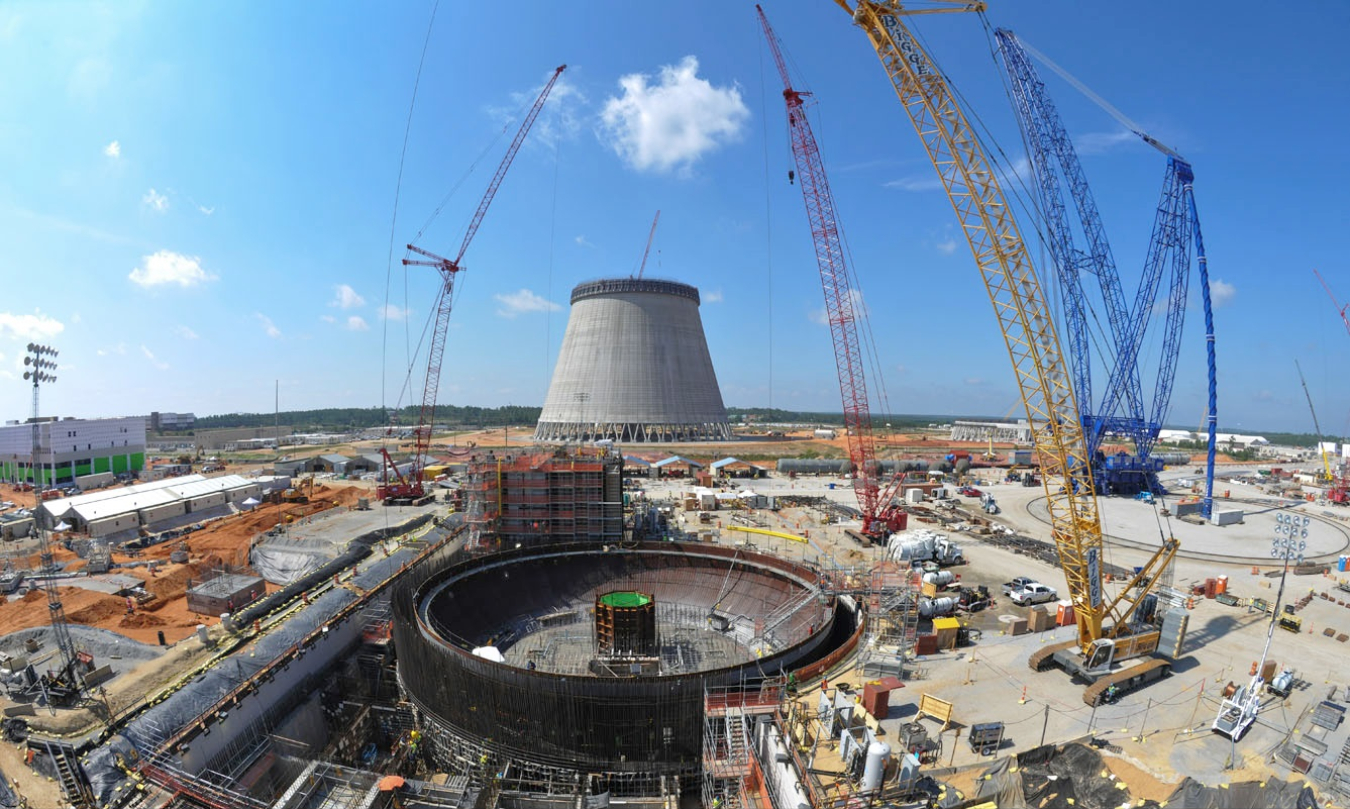
This morning, the Department announced that it is making $12.5 billion in loan guarantees available for Advanced Nuclear Energy Projects. My colleagues in the Loan Programs Office (LPO) and I are following up on this announcement by discussing the role loan guarantees can play in helping to build a strong U.S. nuclear power industry for the future before a gathering of industry professionals at the Nuclear Power International conference.
One area we intend to review is how LPO helped to finance the construction of the first new nuclear reactors in the U.S. in more than 30 years at Georgia’s Plant Vogtle. By committing $8.3 billion in loan guarantees for the project, LPO is helping to revitalize the U.S. nuclear industry, which has the potential to play a large role in meeting our future low-carbon energy goals.
We also will discuss the types of advanced nuclear energy technologies that have been identified in the solicitation as key areas of interest. While any technology that meets the eligibility requirements is welcome to apply, these four areas are of particular interest:
- Advanced Nuclear Reactors: This area focuses on nuclear energy projects with evolutionary, state-of-the-art design improvements in the areas of fuel technology, thermal efficiency, modularized construction, safety systems, and standardized design.
- Small Modular Reactors (SMRs): This area focuses on innovative technologies for nuclear energy projects that are nominally 300 MWe or smaller in size.
- Uprates and Upgrades at Existing Facilities: This area focuses on projects that use an innovative technology to improve an existing reactor by increasing efficiency, increasing capacity or making critical improvements that are integral to current or future facility operations.
- Front-End Nuclear: This area focuses on advanced nuclear facilities for the “front-end” of the nuclear fuel cycle. Of the $12.5 billion available under this solicitation, $2 billion is available exclusively for “front-end” projects. This could include uranium conversion or enrichment, as well as nuclear fuel fabrication.
Over the past 12 months, LPO has also issued an $8 billion Advanced Fossil Energy Projects Solicitation and a $4 billion Renewable Energy and Efficient Energy Projects Solicitation. Now, LPO can issue new loan guarantees for all of the clean energy technology areas for which it has loan authority under Title XVII.
With the amounts available for loan guarantees for innovative clean energy added to the $16 billion Advanced Technology Vehicle Manufacturing Loan Program, LPO has $40 billion available to advance America’s all-of-the-above energy strategy. In leveraging LPO’s remaining authority, we hope to replicate the success of our current portfolio of loans, loan guarantees, and commitments to some of the most innovative clean energy and vehicle manufacturing projects operating in the world today. By doing so, we will build a diverse portfolio that supports new industries and moves us closer to a low-carbon energy future.
Title XVII Open Solicitations
Peter W. Davidson
Peter W. Davidson served as Executive Director of the Loan Programs Office (LPO) at the U.S. Department of Energy from May 2013 to June 2015. Mr. Davidson oversaw the program’s more than $30 billion portfolio of clean energy and advanced vehicle loans and loan guarantees, making it the largest project finance organization in the U.S. government. Mr. Davidson was responsible for ensuring that the LPO carries out its mission to accelerate the deployment of innovative clean energy projects and domestic advanced vehicle manufacturing. By providing debt capital to a broad range of renewable energy, advanced fossil energy, and nuclear energy projects, as well as advanced vehicle manufacturing facilities, the LPO is supporting economic development across the U.S., promoting an “all-of-the-above” energy strategy, and reducing greenhouse gas emissions.
Prior to leading the LPO, Mr. Davidson was Senior Advisor for Energy and Economic Development at the Port Authority of New York and New Jersey and was the Executive Director of New York State’s economic development agency, the Empire State Development Corporation. Prior to his government service, Mr. Davidson was an entrepreneur who founded and managed six companies in Spanish language and other niche markets, broadcasting, publishing, marketing and digital preferred services. Early in his career he was an executive in the investment banking division of Morgan Stanley & Co.
Since 2001, Mr. Davidson has also been Chairman of the JM Kaplan Fund, a New York City based philanthropic organization. Under his leadership, grant making has focused on reducing New York City’s carbon footprint; supporting immigrant integration in the U.S. and archeological conservation world-wide.
Mr. Davidson has a BA from Stanford University and an MBA from the Harvard Business School.

